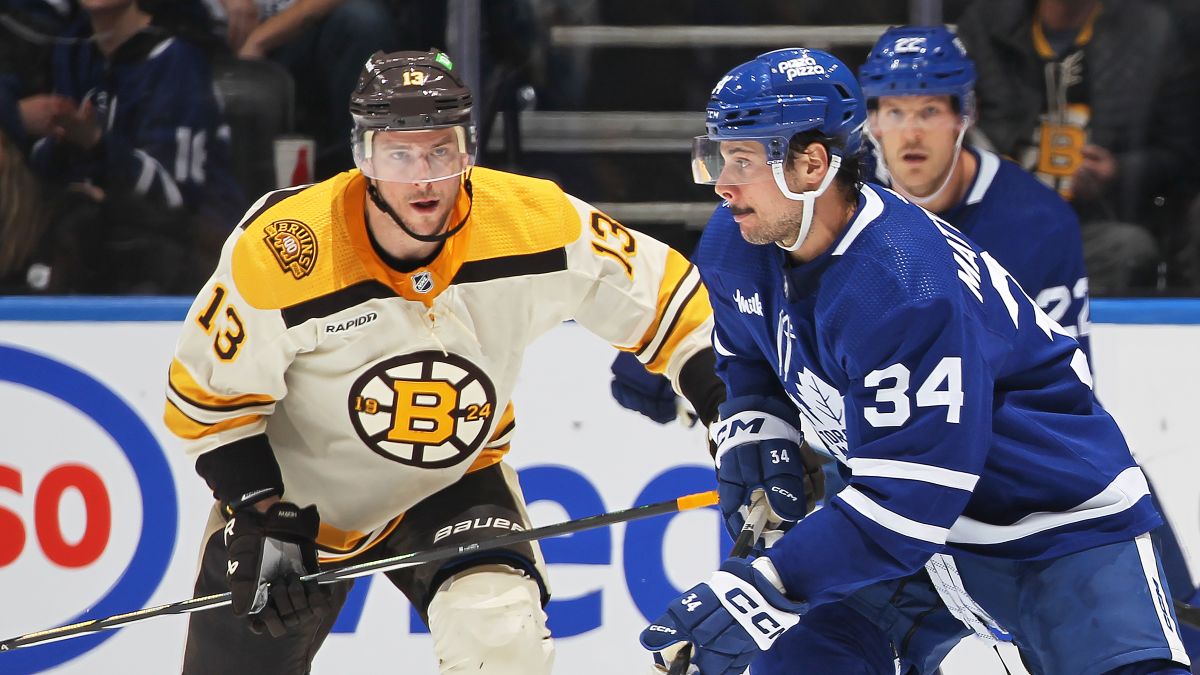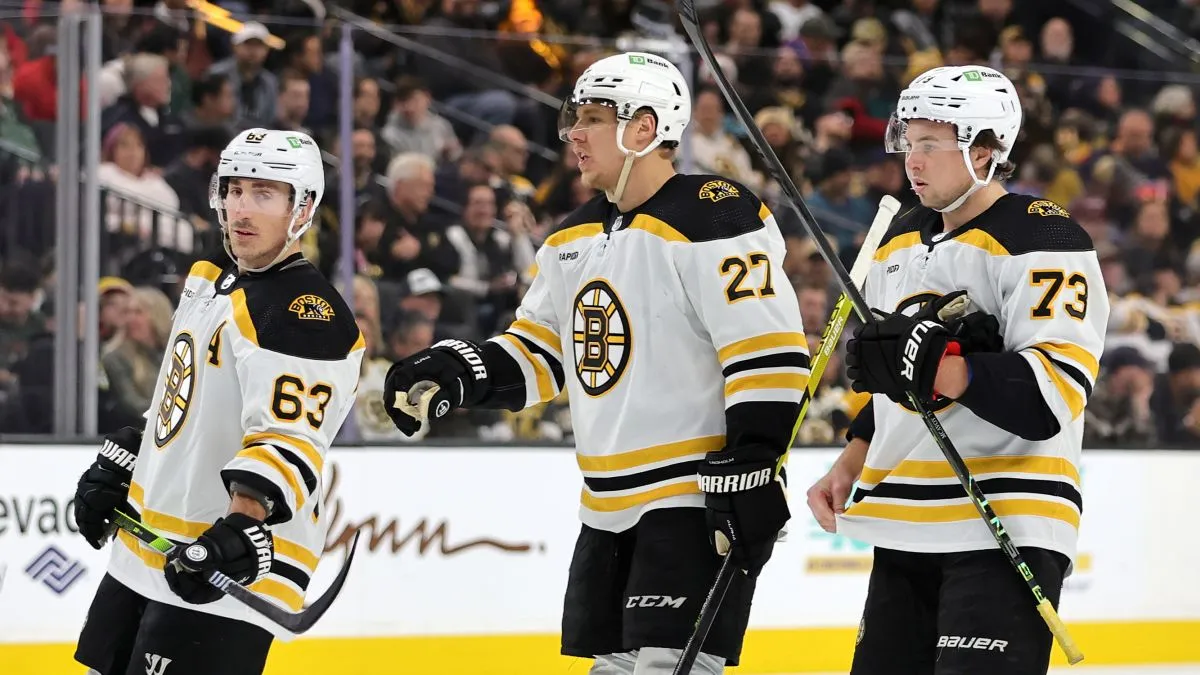Rich Peverley admits it took some time to get past the anger that his NHL career was over due to life-threatening circumstances that were out of his control.
The 35-year-old former Bruins forward is still in excellent shape and conceivably could just now have been at the tail end of his career like former linemate and teammate Chris Kelly, who is wrapping things up playing for Team Canada next month at the PyeongChang Olympics in South Korea. Peverley has experienced no incidents and no limitations since that frightening evening back on March, 10 2014 when he collapsed while sitting on the Dallas Stars bench.
“I’ve had no incidents, no hiccups and I have a clean bill of health,” said Peverley. “I have no restrictions as well. If I want to play hockey recreationally, play other sports or just go to the gym [I can do it]. It’s been really nice.”
MORE BRUINS - Time for Marchand to clean up his act
Given how healthy Peverley is now, it might be easy to forget he went into sudden cardiac arrest prior to essentially being brought back to life after two minutes thanks to quick-acting medical personnel and an onsite AED (automated external defibrillator). It was a shock to both Peverley and to his teammates despite having dealt with his heart condition all season, and it stunned people around the hockey world that knew him from his stops in Nashville, Atlanta, Boston and Dallas during a seven-season NHL career.
Understandably, that fateful March evening wound up also being the final night of his NHL playing career. But it didn’t end the competitive Peverley’s dedication to the game of hockey, or curtail a mission to help people in precarious situations similar to what he went through.
Instead Peverley joined the Stars organization as head of their player development following his retirement as a player. That has helped Peverley big time in transitioning over to a post-playing career, and coping with the things he missed most about the competition and camaraderie of the NHL.
Boston Bruins
“Initially for that first year, there was probably an element of anger in not being able to control my career. For me, I still had an absolute passion for the game,” said Peverley, who had four goals and 12 points in the 25 games for the Bruins during the 2011 Stanley Cup run. “Even though I couldn’t play anymore I really wanted to keep myself in the game. That’s something I always wanted to do even when I was still playing. I always thought I wanted to stay in the game in a management-type of role. This is definitely a way to get my foot in that door. It’s been great. I love it.
“I really love it. You get a little bit of coaching. You get a little bit of the management side. It’s a little bit of travel, but you manage the schedule and it works. I love working with the players. As time has gone on, I’ve really enjoyed what I’m doing. I’m not going to say I love it as much as playing, but it’s a very close second. That has really helped.”
Above and beyond the Stars gig that very much keeps him in the hockey mix, Peverley also has a second passion project that’s kicked off over the last couple of years. Peverley and his wife Nathalie, with assistance from the Stars organization and a big helping hand from Kerry Collins with the B’s organization when they were first getting off the ground, began a charitable organization called “Pevs Protects” that aims to get AEDs into as many hockey rinks, schools and other community venues as possible.
Peverley certainly knows the importance a defibrillator played in averting personal tragedy four years ago, and he wants to make sure other athletes have the same fighting chance should the unthinkable happen with them.
“As time has gone by and we’ve seen a lot of success with the [Pevs Protects] initiative here in Dallas and in Guelph [Ontario], a lot of people are talking. We see a lot of [good] outcomes with putting defibrillators in schools and communities, and a lot of training on how to use them with the students,” said Peverley. “We’ve seen a lot of success and I think that has really put things in perspective. Being a father and having three kids in the spot that I’m in now, it puts things into perspective for me about how important helping others is [with Pevs Protects].
“Getting Twitter messages from people that have heart ailments or heart problems, or people that have passed away because of sudden cardiac arrest or other types of things, it makes you feel way more appreciative of what we’re trying to do. Running a charity is a lot of work, but whenever you think about the lives you’re trying to protect in the future it definitely makes it worth every bit of time we put into it.”
MORE FROM NBCSPORTSBOSTON.COM - Super Bowl LII prop bets
It wasn’t easy for Peverley during that last NHL season in Dallas leading up to that final, fateful game when he collapsed on the bench. It was in that preseason when Peverley had been diagnosed with an “A-fib condition” [atrial fibrillation] during routine physicals, and had undergone a procedure designed to temporarily fix his heart rhythm situation while quickly returning to the lineup. He was forbidden to drink coffee in that final season among other things, and looking back on it now Peverley admits all of it was very challenging leading up to a near fatal episode.
“It was something I definitely had to monitor, and I didn’t have it corrected initially,” said Peverley. “That’s why I had to monitor it. I was in a different situation where I couldn’t have caffeine. That was a big life adjustment in terms of living a different life because I couldn’t have any triggers that would set me off whether it was alcohol, caffeine or whatever. So that last year in Dallas was very difficult for me not having caffeine to get going before a hockey game. I had to manage that. I found ways to get through it, but there were times when it wasn’t easy.”
As part of his desire to help others going through similar experiences, Peverley has talked to former Bruins goalie Jonas Gustavsson, who has had his own incidences with heart rhythm issues including during his one season with the Bruins. He’s kept in pretty close touch with former Bruins teammate Craig Cunningham, who had his own life-altering, on-ice incident with the Arizona Coyotes organization that forced him into retirement.
And Peverley also had heard the news about 20-year-old Bruins prodigy Charlie McAvoy, who earlier this week had an ablation procedure to address an irregular heartbeat condition known as supraventricular tachycardia (SVT). Peverley didn’t want to get into specifics on McAvoy’s condition, but he knew enough to know that the Bruins defenseman’s situation was very different from his own in a number of ways.
Peverley’s one piece of advice from his own experience would be for McAvoy to address the situation properly from square one of his treatment, something that didn’t happen in his own experience prior to his sudden cardiac arrest. By all accounts McAvoy did the very thing Peverley was advising with the ablation procedure undergone a week ago at Mass General Hospital, and absolutely should be worry-free moving forward.
“I know the doctors that he has in Boston are great. He’s lucky that he’s got great doctors. I reached out to them when I was going through everything for that trust factor and the [great] reputation,” said Peverley. “You want to get it right. It sounds as if they’re taking great precautionary steps to get it right the first time. That’s really important…get it right the first time so you don’t have to deal with it anymore.
“Jonas Gustavsson had a similar heart condition and he stopped and fixed the situation, and he didn’t have any issues going forward. If that’s the case with Charlie then I think it’s a great idea: Get it right now, fix the situation and then hopefully it’s something you don’t ever have to deal with going forward.”
According to the Bruins release on McAvoy’s surgery, the type of SVT McAvoy has is not considered to be dangerous to his health, but could have recurred at any time and can cause “significant symptoms” without proper treatment. After consulting with team physicians, experts in this type of heart condition and with his own family of course, the 20-year-old Calder Trophy candidate opted to have the condition treated with the ablation surgery.
Anecdotal evidence poured in from different corners of the hockey world following the McAvoy news breaking, and it all seemed to be saying the same thing concerning his SVT condition and his treatment: The ablation procedure had a very high rate of success, and the vast majority of people never experience any further issues at all once it was fixed by the surgery. Like anything in life t’s certainly not an ironclad guarantee, but it’s a little more reassuring when wondering about 20-year-old hockey players and anything involving their heart health.
As Peverley said, it sounds like the Bruins doctors “got it right the first time” with McAvoy. That’s the single most important thing when it comes to any person, of course, as it is with a 20-year-old singular hockey talent expected to be a workhorse star defenseman for the Black and Gold for a long, long time.


